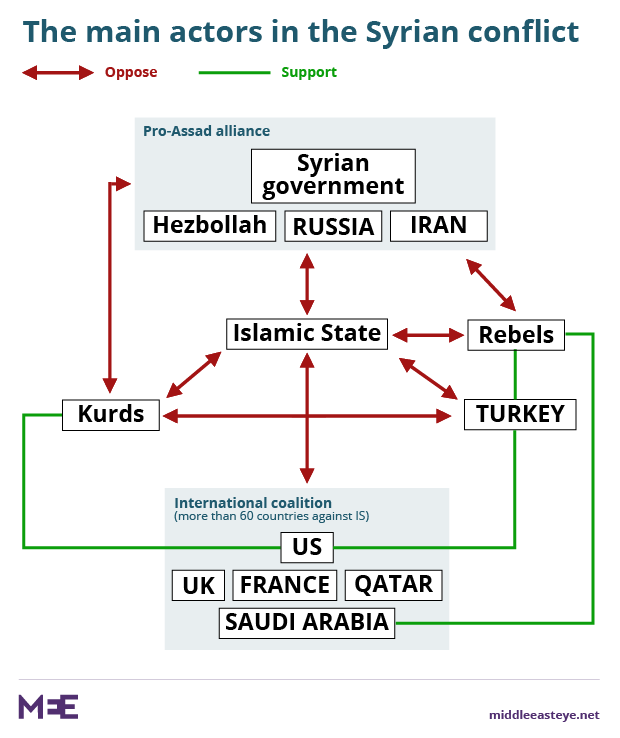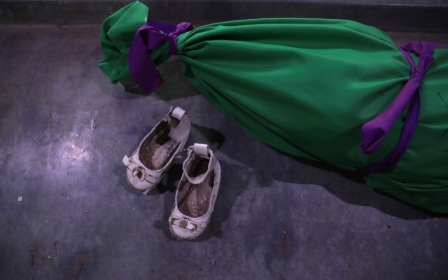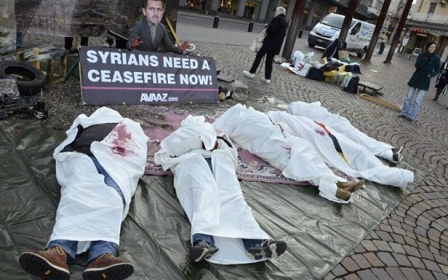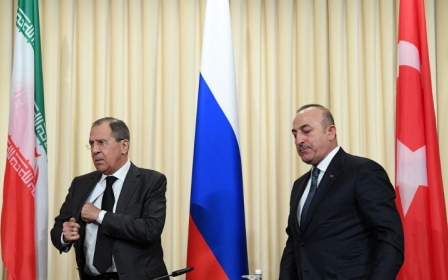Clashes erupt near Damascus in spite of Syria truce
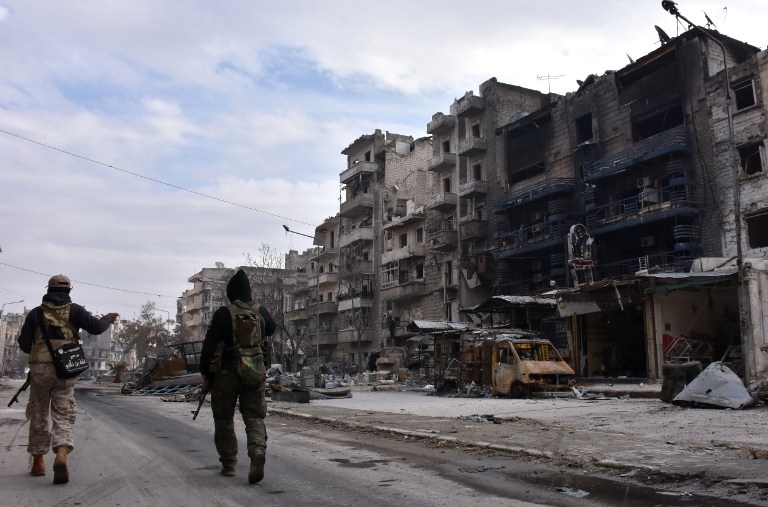
A ceasefire was holding across most of Syria as clashes near Damascus underlined the fragility of the deal brokered by Turkey and key government ally Russia.
The nationwide truce, the first since September, is intended to pave the way for new peace talks in Kazakhstan being organised by Moscow, Ankara and Tehran.
The agreement comes a week after Syrian President Bashar al-Assad's army recaptured second city Aleppo in a major blow to rebel forces.
On Friday, the first day of the ceasefire, the Britain-based Syrian Observatory for Human Rights reported sporadic violence in the Wadi Barada area, where opposition fighters have cut water supplies to the capital.
Observatory director Rami Abdel Rahman said it was unclear who had initiated the clashes, with each side blaming the other.
Syria's government shelled Wadi Barada before the truce began at midnight, pushing for rebels there to accept a "reconciliation deal" and leave the area.
The forces arrayed in the area include former al-Qaeda affiliate Fateh al-Sham Front, previously known as al-Nusra Front, which Syria's government says is excluded from the ceasefire.
Opposition figures however insist the truce applies to all rebel-held territory, even where Fateh al-Sham is present.
Last week, rebels attacked water infrastructure in Wadi Barada and neighbouring Ain al-Fijeh, cutting supplies to the capital.
Four million people in Damascus and its suburbs have been without water for a week, the UN said.
The clashes in Wadi Barada are the most serious of several isolated incidents of violence since the truce began.
The Observatory reported at least 16 government air strikes across several areas in Hama province in central Syria, but no casualties.
Tired of war
In rebel-held Idlib province, however, it was quiet and residents expressed hope for respite from the bloody conflict.
"I support the ceasefire... and I support its continuation," said 31-year-old Ahmed Astify. "Everyone, whether rebels or regular people, is tired."
"We hope that this will lead to the end of the war," added Mohammed, 28.
"After nearly six years, everyone has concluded there can be no military settlement... I support a peaceful resolution," he told AFP.
Syria's government and its ally Iran both welcomed the ceasefire deal, with Damascus calling it a "real opportunity" to find a political solution to the war, which has killed more than 310,000 people since it began with anti-regime protests in March 2011.
Washington also described the truce as "positive" despite being left out of the process.
Analysts were cautious, but said the involvement of key government backers Russia and Iran along with rebel supporter Turkey could be important.
Sam Heller, fellow at the Century Foundation, said there was "real interest and urgency" from Moscow and Ankara, but expressed doubt about whether Tehran and Damascus were on board.
"All indications are that Iran and the regime want to continue towards a military conclusion," he said.
He said renewed fighting in Wadi Barada or Eastern Ghouta, a rebel-held area outside Damascus, could pose threats to the truce.
Talks in Astana
Russian President Vladimir Putin said on Friday that he would reduce Moscow's military contingent in Syria, which has been fighting to bolster the government since last year.
He added that Russia would continue to fight "terrorism" and maintain its support for the government.
Turkey's President Recep Tayyip Erdogan said Ankara would continue the operation it began in August, targeting the Islamic State (IS) group and Kurdish fighters.
Moscow says seven key rebel groups have signed up to the deal, including the powerful Ahrar al-Sham faction, but the truce does not include militants such as IS or Fateh al-Sham.
Syria's political opposition and rebels said the truce applied to all parts of the country.
"The agreement includes a ceasefire in all areas held by the moderate opposition, or by the moderate opposition and elements from Fateh al-Sham, such as Idlib province," said Ahmed Ramadan, a member of the National Coalition opposition body.
Despite backing opposite sides in the conflict, Turkey and Russia have worked increasingly closely on Syria, brokering a deal this month to allow the evacuation of tens of thousands of civilians and rebel fighters from Aleppo.
They are now pushing for peace talks between Damascus and the rebels to start next month in Kazakhstan's capital Astana.
UN peace envoy Staffan de Mistura said he hoped the agreement would "pave the way for productive talks," but he also reiterated that he wants negotiations mediated by his office to continue next year.
Russia and Turkey say the Astana peace talks are meant to supplement UN-backed peace efforts, rather than replace them, and that they want to involve regional players including Egypt, Saudi Arabia, Qatar, and Jordan.
Washington is conspicuously absent from the process, but Moscow said it hoped to bring US President-elect Donald Trump's administration on board once he takes office in January.
Middle East Eye propose une couverture et une analyse indépendantes et incomparables du Moyen-Orient, de l’Afrique du Nord et d’autres régions du monde. Pour en savoir plus sur la reprise de ce contenu et les frais qui s’appliquent, veuillez remplir ce formulaire [en anglais]. Pour en savoir plus sur MEE, cliquez ici [en anglais].


